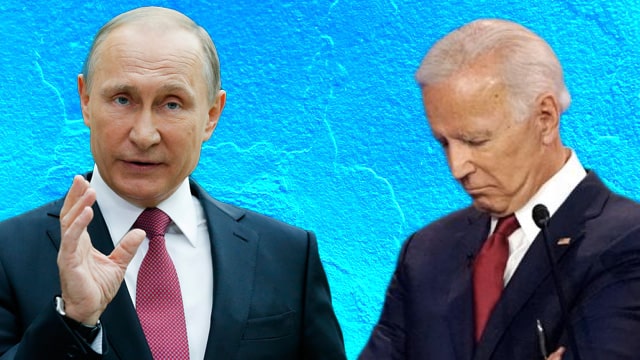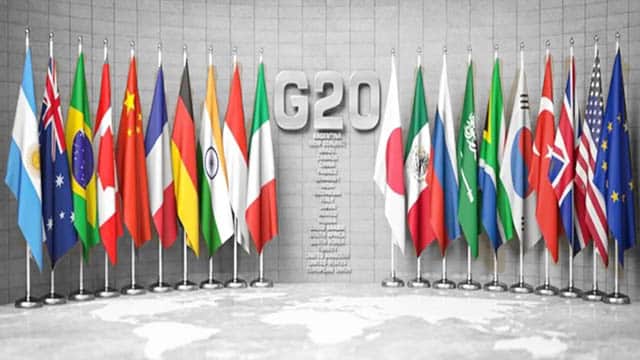Russia’s economy has managed to surmount the challenges posed by the sanctions imposed on it by the West, according to the latest data. Ironically, while the Russian economy has fared well despite the sanctions, the US-led western bloc’s economy has suffered a major setback.
The US and its western partners imposed tough sanctions on Russia after Moscow started its special military operation in Ukraine. The sanctions failed last year in containing Russia, however, the West has suffered due to spiralling inflation and financial crisis.
A report by Swiss bank UBS earlier this week showed that Russia added $600bn of total wealth in 2022, amid the sanctions imposed by the US and its western allies.
The number of Russian millionaires rose by about 56,000 to 408,000 in 2022. The number of ultra-high-net-worth individuals (UHNWI) also rose to nearly 4,500. Individuals who have amassed wealth over $50m fall under the UHNWI category.
Among the countries which lost more wealth than other countries was the US, with losses worth $5.9 trillion. The UBS report highlighted that North America and Europe got poorer by $10.9 trillion.
“Total wealth also rose by more than USD 600 billion in Iran, India, Mexico and Russia. But the noticeable feature of 2022 was the large reductions in wealth recorded by Australia, Canada and China, each of which lost more than $1 trillion (sic)”, the report said.
In the meantime, Russia’s central bank —Bank of Russia—has decided to hike the key rate by 350 basis points. “The Bank of Russia Board of Directors decided to increase the key rate by 350 basis points to 12.00% per annum from 15 August 2023. The decision is aimed at limiting price stability risks”, a statement by the central bank said.
Russian President Vladimir Putin’s Aide Maxim Oreshkin recently emphasised that the budget deficit of the financial year (FY) 2024 will remain around 2%, which is the same as the current FY. Oreshkin also stressed that there will be a budget surplus in the Q3 of the current FY.
“The economy is successfully changing its structure, faster than anyone projected. The economy gained 4.9% in the second quarter compared with last year, moreover, it grew compared with Q2 2021. Non-oil and gas GDP is demonstrating even quicker dynamics,” he said. “It is also obvious that the quick phase of economic recovery has passed, while growth will slow down further on to a more stable range of 2-2.5% per year”, Oreshkin added.
Last week, Russian Deputy Minister of Economic Development Polina Kryuchkova said that the economy’s growth will not just compensate for the decline in the second quarter (Q2) of the last FY, but will show growth against the levels two years back.
“The Russian economy did not merely level up the drop in the second quarter of the last year but also showed incremental growth against the level two years earlier. Real sector industries were main growth drivers, the processing industry in the first instance, where the output surged by 11.3% in the second quarter of 2023. Machine-building and metals complexes made the main contribution to improvement of indicators, with growth noted across almost all industries (sic)”, Kryuchkova said in a statement.
In the meantime, Russian officials have informed that Russia’s non-oil and gas revenues have also increased in the first half (1H) of 2023. This shows that it’s not merely on oil and gas export revenues that the Russian economy is surviving, but on other sectors too.
“Non-oil and gas revenues… increased by 7%, with total growth reaching 1 trillion rubles ($10 bn)”, Head of the Federal Tax Service Daniil Egorov informed on August 15th.
Egorov also informed Prime Minister Mikhail Mishustin that the Russian tax revenue collection has also increased in the 1H of 2023. “Total budget revenues reached 21.7 trillion (rubles) ($228bn) in half a year, up by 4%, or more than 740bn rubles ($7.5bn)”, Egorov told Mishustin.
The US’s losses helped the opponents of President Joe Biden’s government. The Republicans have been lambasting Biden’s government, accusing it of incompetence in managing the economy and supporting the Ukrainian regime at the cost of the US economy.
House Representative Marjorie Taylor Greene (R-GA) admitted that the US’s anti-Russian sanctions have failed. “America sent $113 billion plus sends $1 billion every month to Ukraine’s government and Biden wants another $20 billion yet Russia is getting richer and America is getting poorer by the trillions!!! U.S. sanctions failed. No more money for Ukraine! (sic)”, she wrote on the social media platform X. Greene also urged the federal government not to aid Ukraine financially any more.




